 Petzlover
Petzlover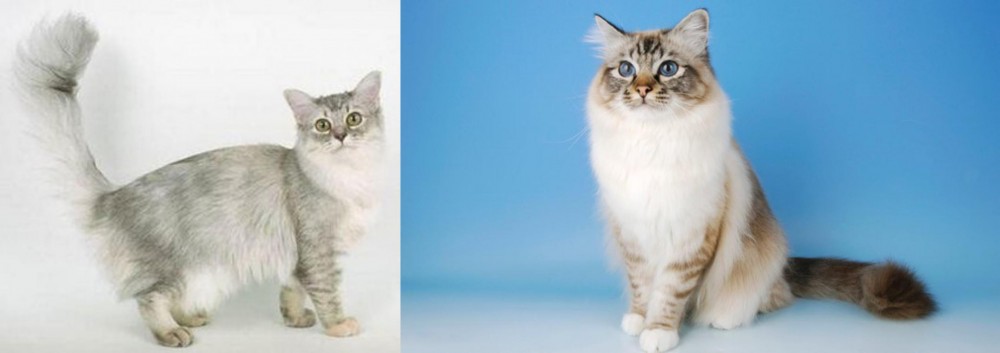 Asian Semi-Longhair is originated from United Kingdom but Birman is originated from France. Both Asian Semi-Longhair and Birman are having almost same weight. Both Asian Semi-Longhair and Birman has same life span. Both Asian Semi-Longhair and Birman has same litter size. Both Asian Semi-Longhair and Birman requires Moderate Maintenance.
Asian Semi-Longhair is originated from United Kingdom but Birman is originated from France. Both Asian Semi-Longhair and Birman are having almost same weight. Both Asian Semi-Longhair and Birman has same life span. Both Asian Semi-Longhair and Birman has same litter size. Both Asian Semi-Longhair and Birman requires Moderate Maintenance.
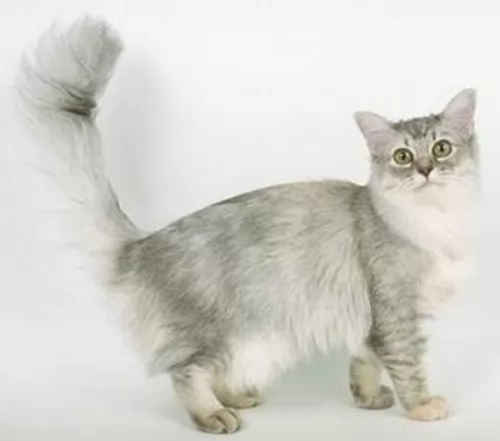 Similar to the Asian Shorthair, the Asian Semi-Longhair with its semi-long fur was developed in the UK in the 1980s and isn’t recognized by any U.S. registries.
Similar to the Asian Shorthair, the Asian Semi-Longhair with its semi-long fur was developed in the UK in the 1980s and isn’t recognized by any U.S. registries.
It is believed that the cat breed goes back to matings between the Chinchilla and Burmilla cats. This cat may not be recognized by any of the U.S. registries but it has recognition in the GCCF.
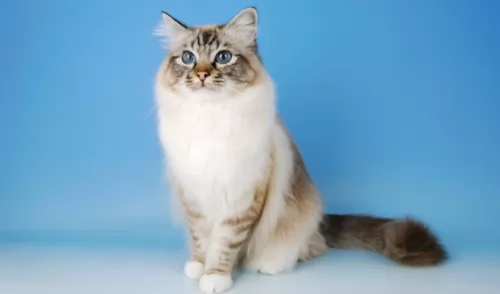 There isn’t clarity as to this exquisite cat’s origins. Many people believe they originated as the companions of temple priests in northern Burma.
There isn’t clarity as to this exquisite cat’s origins. Many people believe they originated as the companions of temple priests in northern Burma.
The cats somehow found their way to France, and it is believed that they have been in France since the 1920s.
The cats nearly disappeared during World War II, but luckily the remaining Birmans that survived were crossed with Siamese and Persians to strengthen the breed. In the early 1950s, pure Birnam litters were produced. It was in about 1959 that Birmans were brought to the United States.
The cats were also recognized in Britain in 1965 and in 1966 by the CFA. The first Birman cats were seal point but later other colors were brought in such as red, chocolate, and tabby.
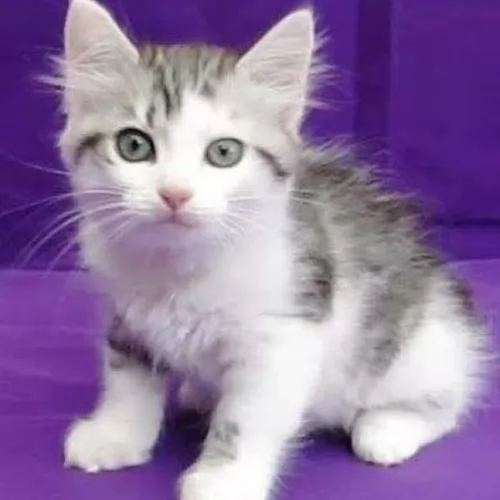 This beautiful cat is medium to large in size and can weigh up to 6 or 7kg. The body is compact, the face and eyes round with a slightly blunt snout. The ears are fairly small and pointed.
This beautiful cat is medium to large in size and can weigh up to 6 or 7kg. The body is compact, the face and eyes round with a slightly blunt snout. The ears are fairly small and pointed.
The luxurious silky coat comes in different colors and patterns such as black, brown, chocolate, blue and lilac, which happen to be the five main colors of this beautiful cat with his shiny green eyes.
The Asia Semi-Longhair is a gentle cat but curious and active. These are cats that become attached to their human owers and don’t like to share their humans with other cats.
They’re very talkative and they are therefore not the best breed to keep in an apartment. It’s also a cat that doesn’t like to be left on its own for long periods of time and will make a friend of children and other pets such as dogs if it means some companionship.
 These are medium-sized cats which can become fairly large. They can weigh up to 4, 5 or 6kg. They are fairly heavily boned with a broad face and ears that are widely spaced.
These are medium-sized cats which can become fairly large. They can weigh up to 4, 5 or 6kg. They are fairly heavily boned with a broad face and ears that are widely spaced.
The round eyes are deep blue. The cat’s fur is medium-long and should be silky to the touch with no undercoat. Ther cat is a moderate shedder.
The base color is whitish to cream, but the kittens are always born white. Coat color, whether red, cream, or chocolate is always pointed and the cat always has the white paws.
The Birman isn’t as outgoing as some of the other cat breeds and its a quiet, docile intelligent cat that attaches itself to one particular family member. They can actually become jealous of their human companion and demand their attention.
These friendly cats are wonderful choices for families with children and dogs. They are calm and affectionate, and softly spoken, quietly letting you know when it’s dinner time and enjoying just being around his human family.
He is able to get along well with kids and other pets in the home. He can become quite playful too and because he is so intelligent, you can buy him some toys that require him to think.
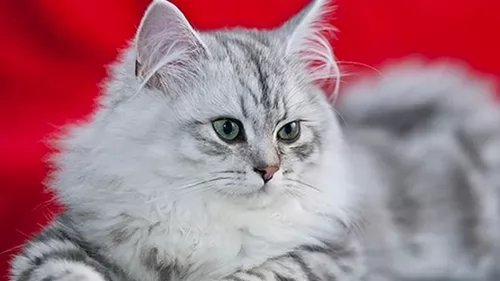 The Asian Semi-longhair is such a sociable, friendly cat and he loves his human family so much that he can’t bear to be separated from them. It is often referred to as being a dependent cat, as it absolutely hates being alone and does not want to be separated from the people he loves.
The Asian Semi-longhair is such a sociable, friendly cat and he loves his human family so much that he can’t bear to be separated from them. It is often referred to as being a dependent cat, as it absolutely hates being alone and does not want to be separated from the people he loves.
It’s not the type of cat to get if you work long hours and there is nobody else at home. It's the kind of cat that also gets on well with kids and dogs.
He is such a playful cat that even a yarn of wool will keep him amused for ages and he loves toys. For so much friendship coming from your feline friend, he deserves plenty of love and attention - after all, he is prepared to give you that.
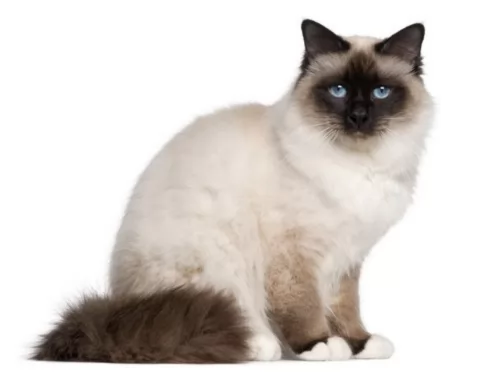 The Birman cat has to be one of the most beautiful cats there are, but the cat isn’t only a beautiful cat, it has wonderful characteristics as well.
The Birman cat has to be one of the most beautiful cats there are, but the cat isn’t only a beautiful cat, it has wonderful characteristics as well.
It is a loving, affectionate cat with his human family, loving to spend time around them. Playful and healthy, when you bring this most wonderful cat into your home, it will be as though an angel has come to stay.
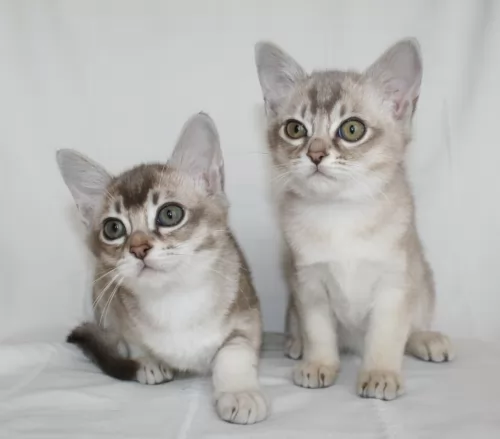 The Asian Semi-longhair is a robust cat, not prone to lots of health issues and he can reach up to 15 years of age.
The Asian Semi-longhair is a robust cat, not prone to lots of health issues and he can reach up to 15 years of age.
It doesn’t have any particular breed-specific diseases, but as with any cat, you want to be looking out for heart and periodontal diseases.
Also, hypokalaemic polymyopathy is a condition that results in muscle weakness and pain in your cat. The cause is low potassium and your pet's entire body can have muscle weakness.
Some other symptoms include being stiff, slow walking and an actual reluctance to walk. Some of the common causes of this illness include chronic kidney disease and poor diet.
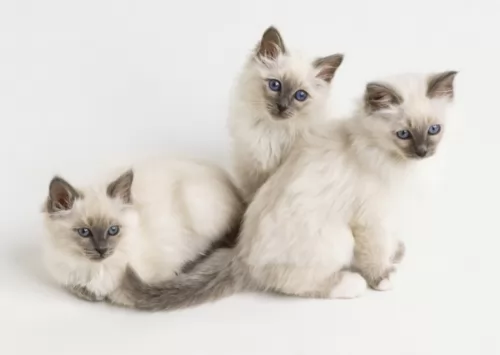 With good health your Birman can reach up to 13 years of age. With the Birman, the most serious illness is feline hypertrophic cardiomyopathy which also happens to be the most common heart disease in cats.
With good health your Birman can reach up to 13 years of age. With the Birman, the most serious illness is feline hypertrophic cardiomyopathy which also happens to be the most common heart disease in cats.
It’s a progressive disease and can result in heart failure. The cats are also at risk of developing feline infectious peritonitis.
Also, because this is a larger cat and a stocky kind of breed, it can easily put on weight and then become overweight. Strict attention will need to be given to diet as well as daily exercise.
Also, look out for Corneal dermoid - skin and hair on the surface of the cornea in one eye or in both. Luckily this is an eye problem that can be surgically corrected.
 Your Asian Semi-Longhair will require regular deworming.
Your Asian Semi-Longhair will require regular deworming.
Keep your cat’s vaccines up to date.
The Asian Semi-longhair has moderate to long hair, and it’s a cat that sheds quite a bit so use a soft brush to brush the coat gently twice a week.
Have your cat spayed or neutered as this can prevent unwanted kittens. Not only this, doing this for your cat can be beneficial for your cat and bring out better characteristics in them. They no longer want to roam and mark territory. In the female cat it's the removal of the cat’s ovaries and uterus, and with the male cat, neutering is the removal of the cat’s testicles.
After this op, your vet will explain to you how to look after your recovering pet.
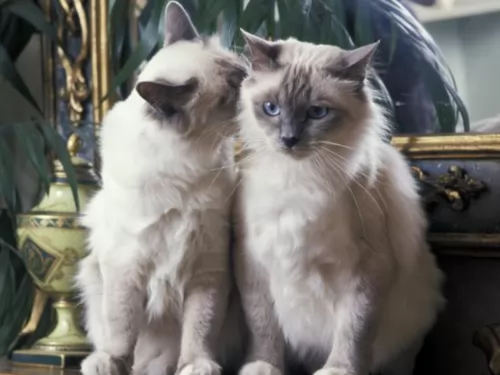 The Birman has a silky coat that sheds moderately so you want to give him a gentle brush once or twice a week to keep the coat of his soft and silky.
The Birman has a silky coat that sheds moderately so you want to give him a gentle brush once or twice a week to keep the coat of his soft and silky.
The Birman has a full topcoat, with no undercoat which means that you won’t have the coat matting or tangling.
He’ll need his nails trimmed and his teeth checked regularly. Your vet or professional groomers can do this for you and clean his teeth and check that there are no bad teeth making your pet sick.
The Birman cat has access to some great commercial cat food as there are some seriously good quality ones.
Many cat lovers choose cat foods that are AAFCO (Association of American Feed Control Officials) approved. It at least provides minimum standards for pet foods.
For your Birman you want to avoid artificial flavors and preservatives. Choose quality foods high in meat protein. As a carnivore, a cat has a huge need for meat protein. Get to know your pet food labels and choose foods with added taurine and vitamin A.